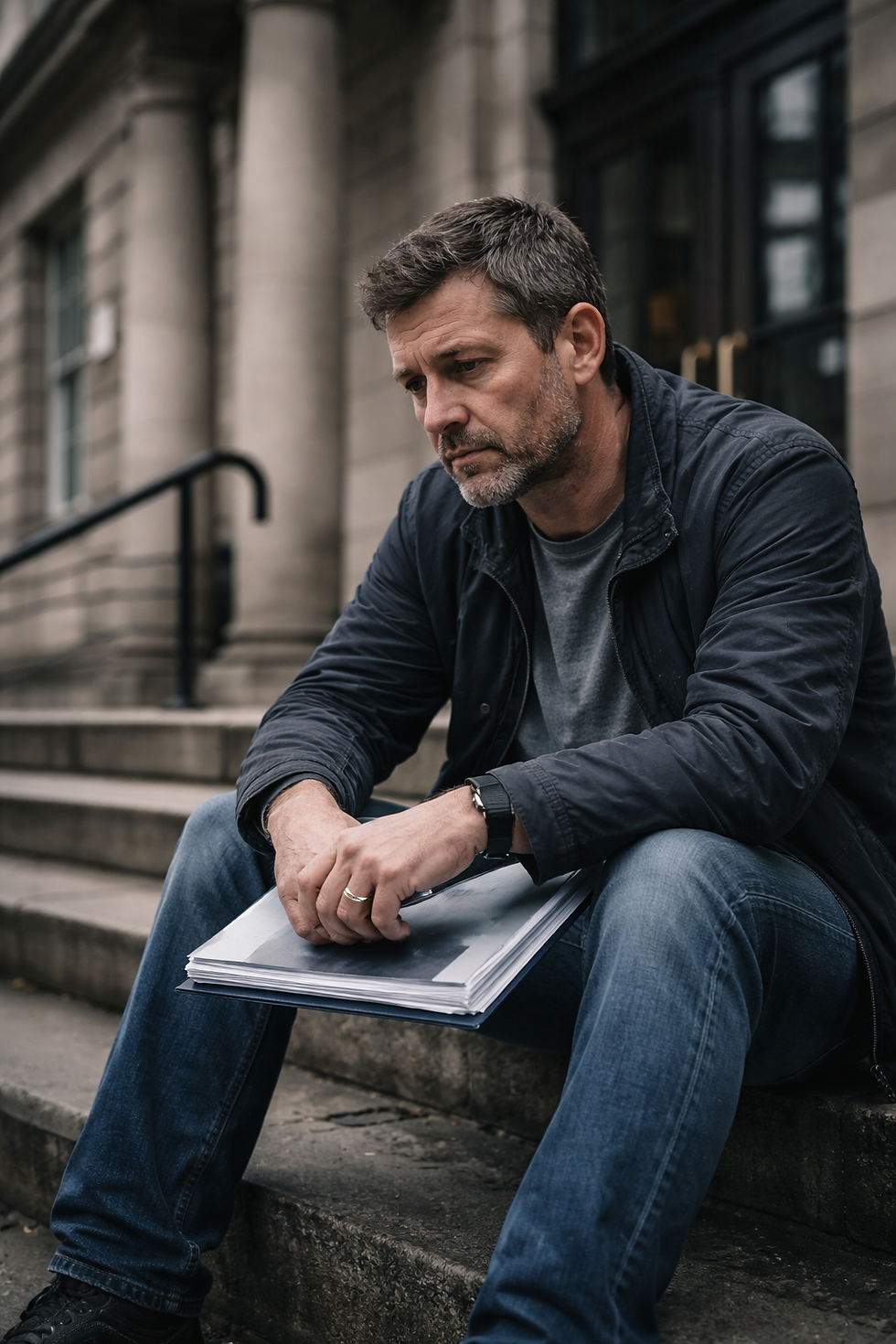Sexist Attitudes Are Silencing Male Victims of Domestic Abuse — And It’s Time We Faced That Fact
- Falsely Accused Network

- Jul 15, 2025
- 3 min read
By Michael Thompson, Founder, Falsely Accused Network
It’s not often that academic research manages to cut through the noise and confirm what many of us on the frontlines already know. But a new study published in Psychology of Men & Masculinities has done just that. It exposes something both obvious and uncomfortable: sexist beliefs about men are directly fuelling the widespread dismissal of male victims of domestic abuse.
Let that sink in.
This isn’t just a case of society being slow to catch up. This is about a deep-rooted cultural bias—shared by men and women—that refuses to see men as victims, especially when their abuser is female. And it’s killing men. Slowly, silently, and with the full approval of a public narrative that still thinks a slap from a woman is funny and a crying man is weak.
The study created a new tool—the Intimate Partner Violence Myths Toward Male Victims (IPVMM) Scale—to measure just how much people believe in myths like “men are rarely victims” or “if a man is abused, he’s obviously lost control of his household.” The results were bleak. Participants scored above the midpoint of the seven-point scale. In other words, most people believed at least some of these toxic myths.

And here’s the kicker: the strongest predictor of these harmful beliefs wasn’t ignorance or lack of exposure to abuse. It was sexism toward men.
That includes both hostile sexism—the belief that men are violent, emotionally stunted, or unworthy of sympathy—and benevolent sexism, the kind that paints men as protectors, providers, and stoic heroes who never need help. Both are equally dangerous. Both are used to justify turning away male victims when they finally have the courage to speak out.
In other words, the same society that praises “strong men” turns around and mocks those who dare admit they’ve been abused.
Even more disturbingly, the study found that people who had perpetrated partner violence themselves were also more likely to endorse these myths. No surprise there. It’s easier to abuse someone if you believe no one will believe them.
On the flip side, being a victim of abuse didn’t significantly reduce belief in the myths. That’s how deep this runs. Many men don’t even recognise what they’ve been through as abuse. They’ve been trained, from boyhood, to brush it off, stay silent, and never complain. By the time they reach us at Falsely Accused Network, they’re often broken, bewildered, and still questioning whether what happened to them “really counts.”
Let’s be clear: it does count. Abuse is abuse, no matter your gender.
What makes this study so important is that it forces us to confront our double standards. As the researchers note, belief in myths about male victims was significantly higher than myths about female victims. That means society is still far more comfortable seeing women as victims and men as aggressors—even when reality doesn’t match the script.
This is why male victims don’t come forward. This is why men who are falsely accused of abuse are instantly presumed guilty. This is why the police laugh at battered men. This is why family courts routinely sideline fathers. It’s not just a legal failure. It’s a cultural betrayal.
And it has to stop.
At Falsely Accused Network, we see these myths play out every single day. Men who’ve been stabbed, punched, controlled, emotionally manipulated, stalked, harassed, lied about—many of them still can’t get support, justice, or even basic recognition that they were victims. Worse, when they try to speak out, they’re mocked, ignored, or told they must have deserved it.
We hear from men who’ve been thrown out of their homes on the basis of nothing more than a false allegation. We hear from fathers banned from seeing their kids because their ex made up a story and the court believed it. We hear from those whose mental health has collapsed under the weight of shame and disbelief.
If any of this happened to a woman, there would be national outrage. But when it’s a man? Silence. Or worse, laughter.
This study should be a wake-up call. Not just for academics and campaigners, but for the police, the courts, social services, the media, and the public at large. It’s time we recognised that sexism doesn’t just hurt women—it also buries male victims beneath a wall of disbelief.
We need to stop asking, “Why didn’t he leave?” and start asking, “Why didn’t anyone help him?”
We need to stop assuming men can’t be victims and start listening when they say they are.
We need to call out sexism in all its forms—including the kind that tells men to shut up and suffer in silence.
And above all, we need to believe men—just as we say we believe women.
Because justice should not be reserved for one gender. And neither should support.
---
Michael Thompson
Founder, Falsely Accused Network
📞 0204 538 8788



Comments